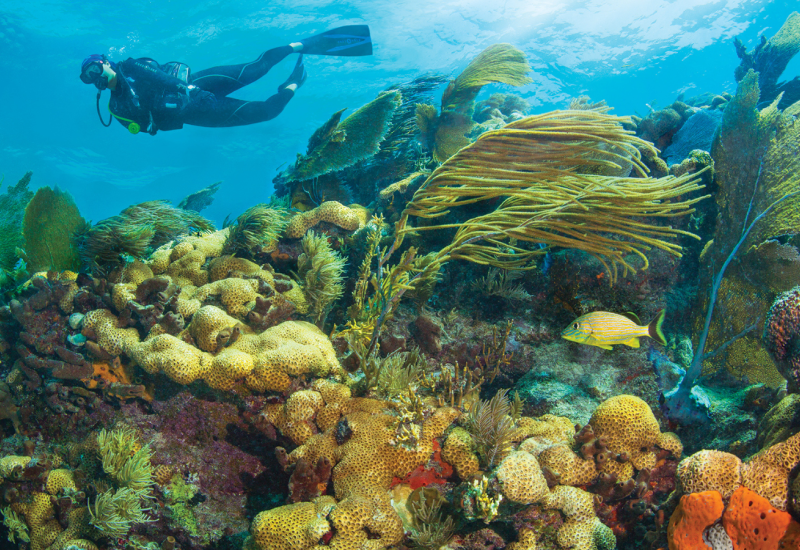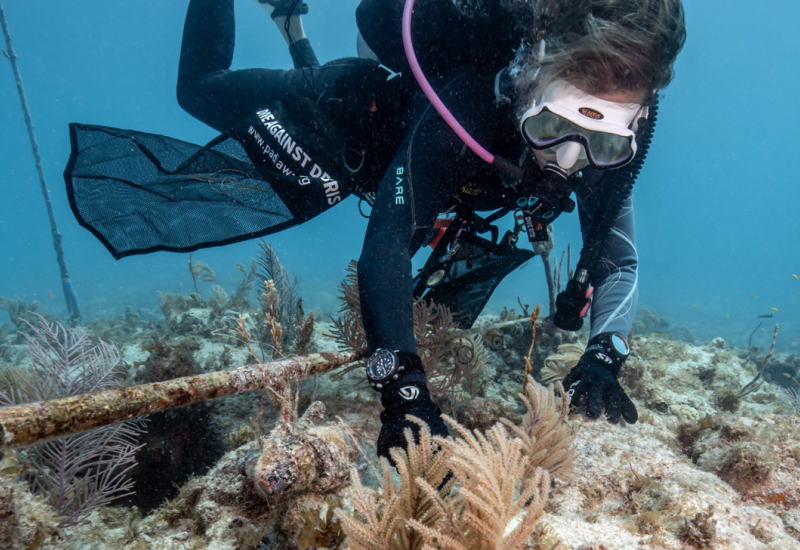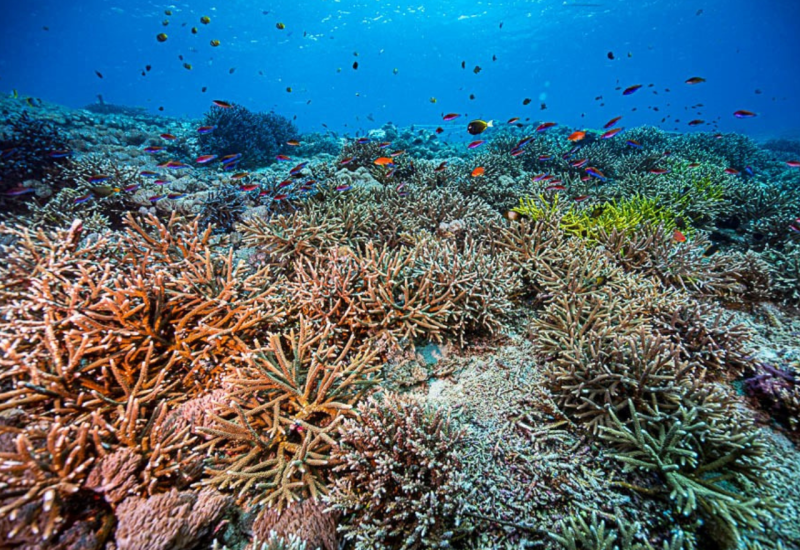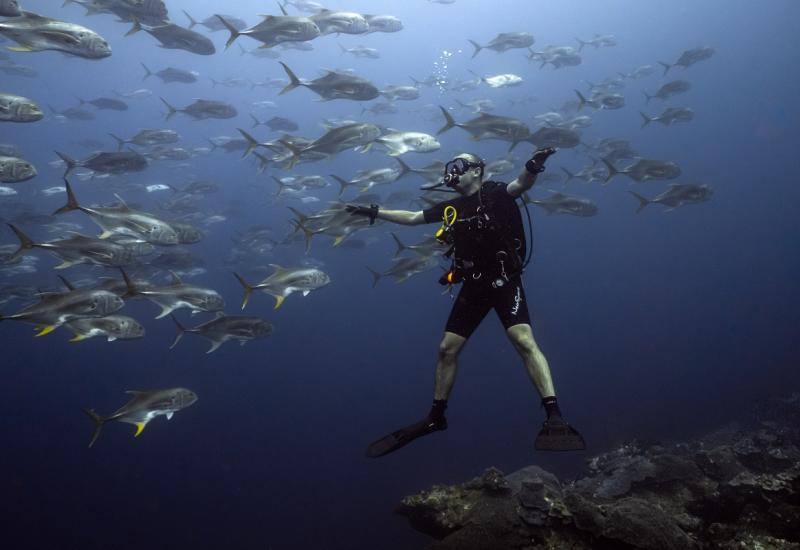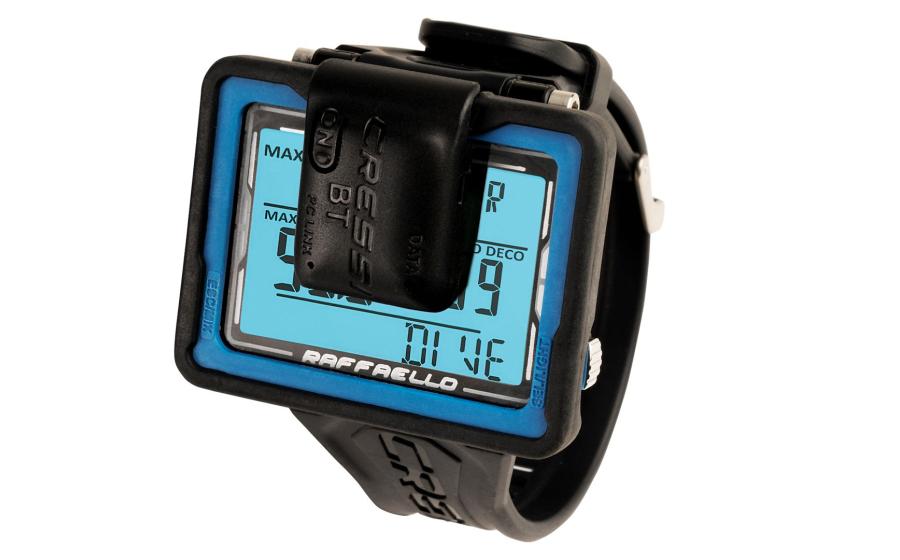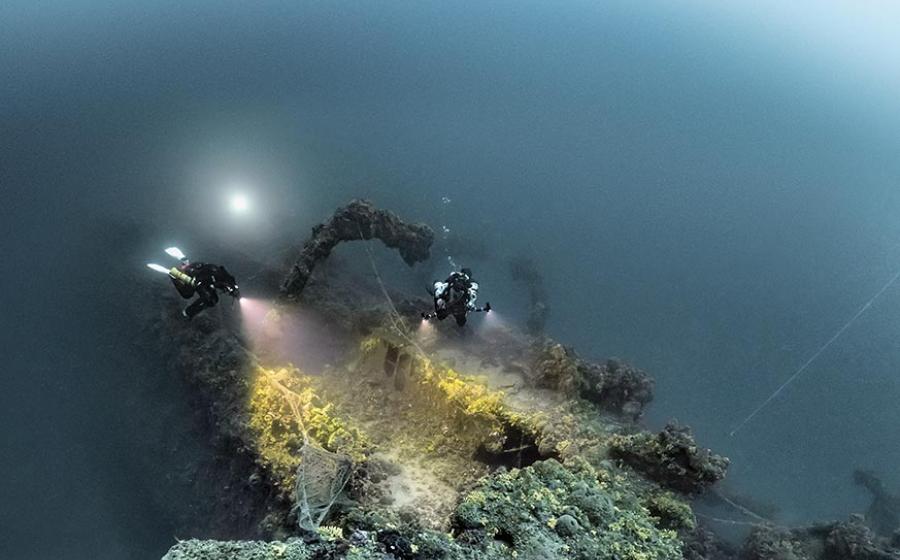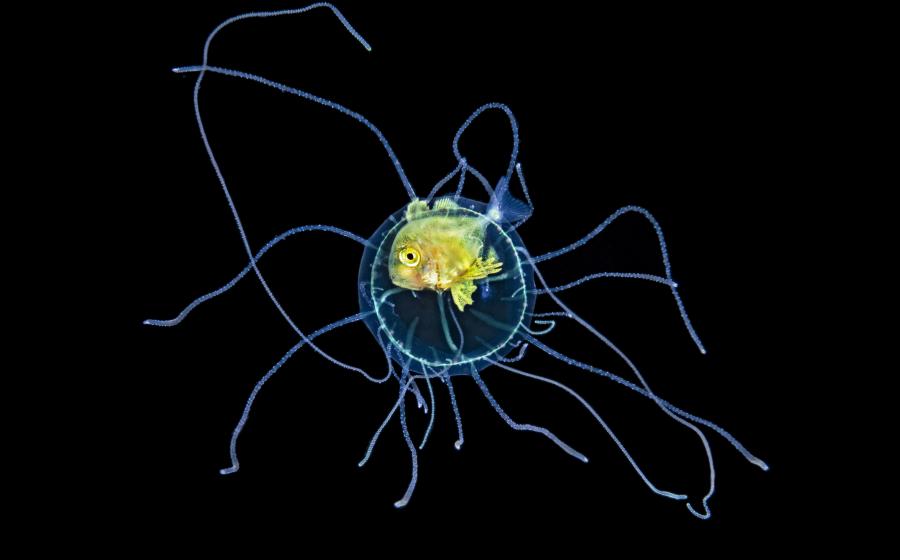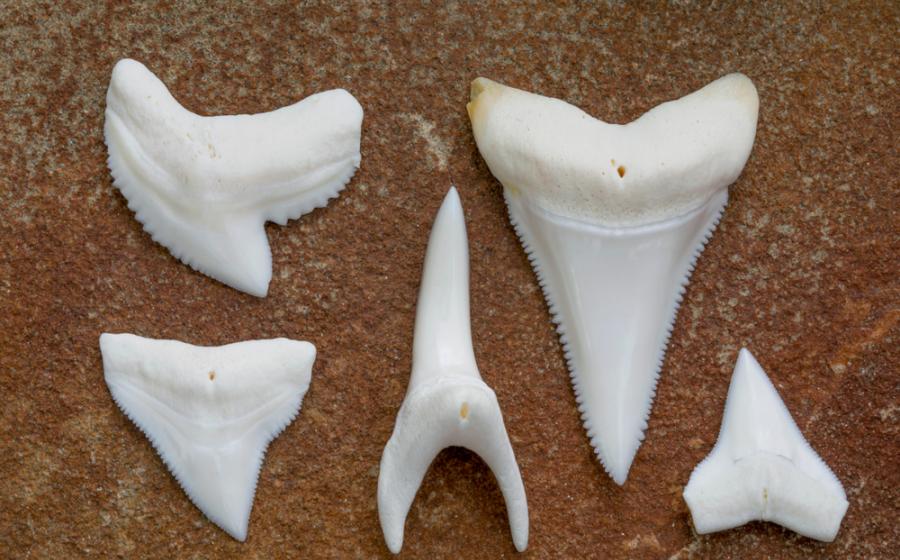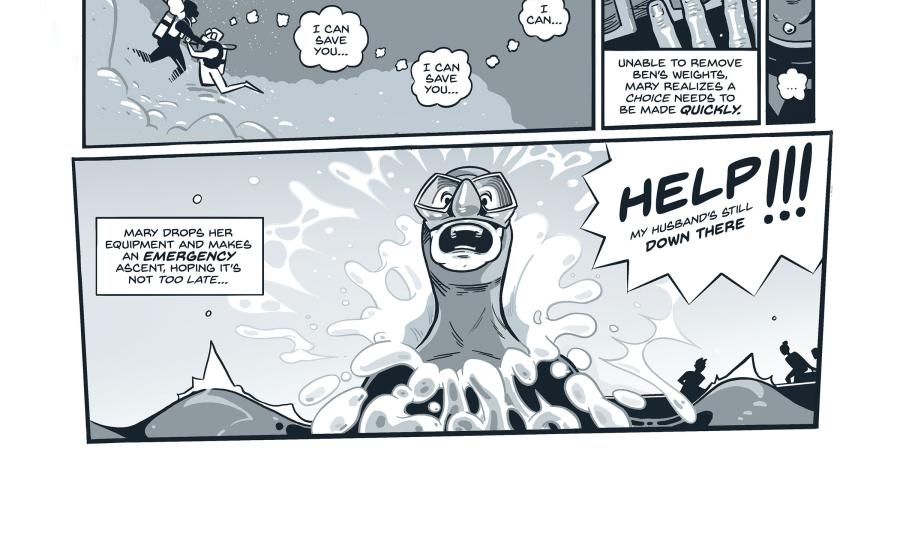Marine Conservation: Save the Puffins
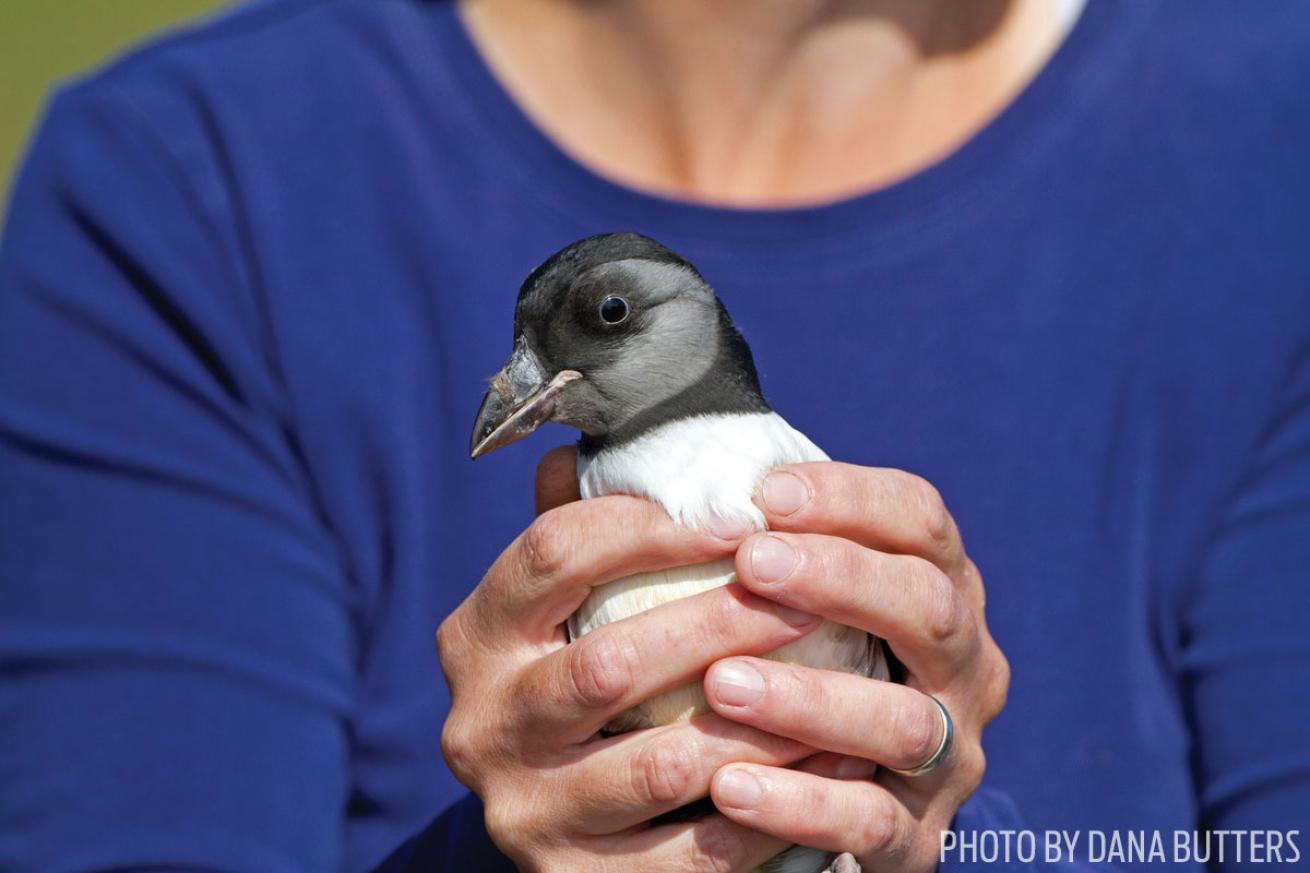
Dana ButtersConservation: Saving Baby Puffins
A helping hand: Pufflings leave the colony without their parents and face a number of dangers.
Graceful in water, puffins tend to trip over their safety-cone-orange feet while waddling on land. Worse, their chicks can be pulled off-course by artificial lighting while making their first journey to open ocean. Lost pufflings often circle until they grow dehydrated, which inhibits their ability to fly — and then many fall prey to gulls, cats and cars.
Enter the Puffin Patrol, a conservation group on the southern shore of Newfoundland, Canada. From August to October, volunteers — mainly teenagers and families — scoop up wayward juveniles every night and release them into Witless Bay at dawn. In 2014, the patrol rescued 825 birds, which joined one of North America’s two largest Atlantic puffin colonies, made up of more than 260,000 mating pairs.
The tradition began in 2006 with two summer residents: Juergen Schau, a semiretired film executive from Berlin, and his wife, Elfie. Armed with butterfly nets, they collected lost fledglings and encouraged local children to do the same, paying $1 for each stranded chick. “But soon, they didn’t want any money, and they taught their parents to support the Puffin Patrol,” Juergen says.
In 2011, the group also began shepherding the world’s second-largest colony of Leach’s storm petrels, which contains around 620,000 pairs. Along with the Canadian Parks and Wilderness Society, the patrol started campaigning against light pollution, an escalating problem as the oil industry draws more people to Newfoundland.
“Now locals are more inclined to turn their lights down,” says the Wilderness Society’s co-executive director, Suzanne Dooley. “In fact, some businesses have even disconnected their advertising lights. This is a huge step forward.”
Visitors to the province can join the Puffin Patrol (August tends to be the busiest time). To volunteer, contact [email protected] or call 709-726-5800.

